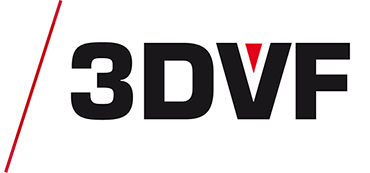This article is also available in:
French
We continue our exploration of the latest trends showcased at SIGGRAPH 2023 with a conference dedicated to rigging. We took a deep dive into techniques used in production at Disney and Pixar.
A lot of people attended thteconference titled Rigging Without the Rig: New Methods in Character Animation. It covered both classic and innovative approaches, along with challenges in shading and rendering. The star of the day: Splat from Disney’s Strange World! A character so complex that two presentations were required to discuss its inception.

Even though they weren’t the core focus of the conference, shaders were at the heart of the first presentation. Splat is a very specific character: as Disney explains, there are chromatic edge along the outer rim of the character. Furthermore, it features an inner glow, which distorts and is not uniform. The challenge, here, was to find efficient methods to create these effects.

The next presentation focused on Splat’s rig, which was… quite a challenge. The team discussed the performance requirements for the film before delving into the methods they used to meet these challenges. They focused largely on Splat’s tentacles.
It should ne noted that this animated feature was a box-office bomb, earning around 73 million dollars with a production budget of 135-180 million, excluding marketing costs. If, like too many animlation lovers, you haven’t watched it already, you can head over to Disney+. As we mentionned earlier, this project also features impressive cloth techniques.
Following this presentation, Pixar told us about a new shaping rig they created in order to give animators fine controls during the production of Elemental. They developed new tools that auto-generate surface-aligned orientations mapping animation controls into curvenet deformations. In a nutshell: thanks to this technique, animators were able to reshape the character articulation without using any extra rigging setup, and in the blink of an eye.
A paper is available about this technique over at Pixar, and we highly recommend you read it for more information.


Finally, Pixar concluded on a high note with a presentation about Win or Lose, an animated series that will stream on Disney+ at the end of the year. The project features 3D-animated characters with a very graphic and 2D design. This raised the question of facial expressions and how to maintain facial details without breaking topology and shading. Pixar then opted for a counterintuitive approach: why not separate the facial elements from the head?

Pixar explained how they managed the faces pretty much like a Mr. Potato head, splitting the face apart and then combining everything using a complex shader.

Another paper details this surprising technical choice. It should be noted that the Win or Lose series was already touched upon in our video interview with Jim Morris, President of Pixar Animation Studios. You can watch this interview below. At 13:22, Jim Morris discusses the studio’s work for Disney+ and the positive impact it had for Pixar.
Overall, this SIGGRAPH conference on rigging was fascinating, presenting various challenges that required very diverse solutions.

